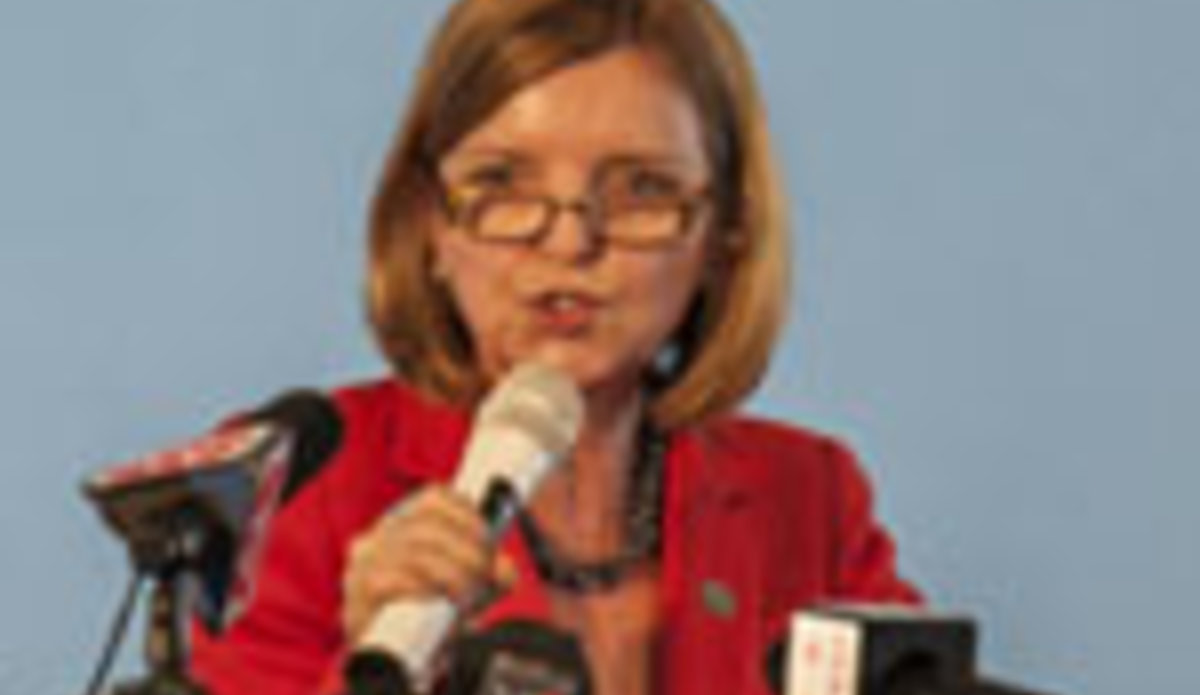SRSG Remarks from the 10th Anniversary of Liberia's Peace Accord
Karin Landgren
Special Representative of the Secretary-General and Coordinator of United Nations Operations in Liberia
Remarks: 10th Anniversary of the CPA, Centennial Pavilion, Monrovia
Monday, 19 August 2013
10:30 hrs
----------------------------------------------------------------------------------
Your Excellency President Ellen Johnson Sirleaf;
Vice President Joseph N. Boakai;
Speaker of the House, Honorable Alex Tyler;
President Pro Tempore of the Senate, Honorable Gbehnzongar Findley;
Honorable Members of Cabinet and Government;
Honorable Members of the Legislature;
Former President Dr Amos Sawyer
Members of the diplomatic and international community;
and all Liberians:
On this day ten years ago, Liberia turned its back on the long years of war. The Comprehensive Peace Agreement – the last of a series of peace agreements signed since 1993 – became the line in the sand, the one which enabled Liberia to begin afresh. Since that day, the commitment, actions and prayers of Liberians have kept the weapons silenced, and kept peace alive.
On the 18th of August 2003, Liberia began to move towards stability and progress. The conditions UNMIL found when it first deployed nearly ten years ago are now almost unimaginable. The drive from Congo Town to Central Monrovia would be completely unrecognizable to someone visiting today, as in 2003 there was almost not a single building left standing and the peacekeepers were camped out wherever they could. A few days ago, I spoke with the women of WIPNET, the women in Peacebuilding network, who had reunited at the airfield on Tubman Boulevard, wearing white, just as in the days when they gathered bravely to protest the violence. Every woman I talked to told me her life was much better now. Peace means better lives.
Peace is a long process. The peace agreement, the starting point, meant that Liberians could get to work rebuilding the country’s infrastructure and institutions, and re-assembling their lives, after unimaginable trauma and suffering. By the end of 2004, over 100,000 fighters had been disarmed and local government officials had taken up posts in all of Liberia’s counties; by mid-2005, hundreds of thousands of refugees and internally displaced had returned to their homes; and by January 2006, democratically elected leaders had been sworn into office.
UNMIL provided an umbrella of security, a force of 15,000 that was also proof of the determination of the international community that peace would be maintained. I want to pay tribute to the UN peacekeepers who died in the service of peace in Liberia, and also to the ECOWAS peacekeepers who came before them. UNMIL gave Liberia time and space to begin rebuilding a reformed security sector; to extend state authority throughout its territory; to repair roads, schools and clinics; to conduct elections; and for economic revitalization to take root. These and many other initiatives have helped to build the peaceful Liberia of today.
This continued peace is a magnificent achievement. We should neither take it for granted nor regard it as a finished product. As Liberia continues to rebuild itself and recover its soul, it is also still coming to grips with painful historical legacies, and working out how to avoid mistakes of the past. Liberia is creating a more open, responsive and democratic political system, more accessible and accountable public services, justice and security systems in which people can have confidence, and greater, more equitable economic opportunities.
These are fundamentals of peace and stability. Through Liberia’s reconciliation agenda, Liberians are grappling with a number of profound issues that have contributed to past grievances and resentments. And these will be addressed through many ongoing reforms, including constitutional reform, decentralisation, anti-corruption initiatives and greater transparency in extractive industries. At the core of continued stability is the firm intention of all Liberians to remain on the path of peace.
Liberia’s peace is also strengthened by growing stability among its neighbors. The United Nations Integrated Peacebuilding Office in Sierra Leone will close its doors early next year, and the United Nations Mission in Côte d’Ivoire is also beginning its own phased transition. The region will need to be united in developing a regional approach to security and remaining vigilant against risks. Liberia, after a decade of uninterrupted peace, can play a vital role in driving greater stability in the Mano River Union countries.
This conflict affected all Liberians and this peace agreement meant something different to every one of them.
As we pay tribute for reaching this milestone in Liberia’s history, we do so together, united in our commitment to maintain and strengthen the foundations of Liberia’s peace and stability. The United Nations salutes Liberia, its people and its political leaders for their determination and for the steps taken so far to build the institutions that will underpin stability and prosperity for the decades to come. The UN remains at Liberia’s side, CONGRATULATIONS LIBERIA, onwards to the next 10 years!
Thank you.
 UN
UN United Nations Peacekeeping
United Nations Peacekeeping





